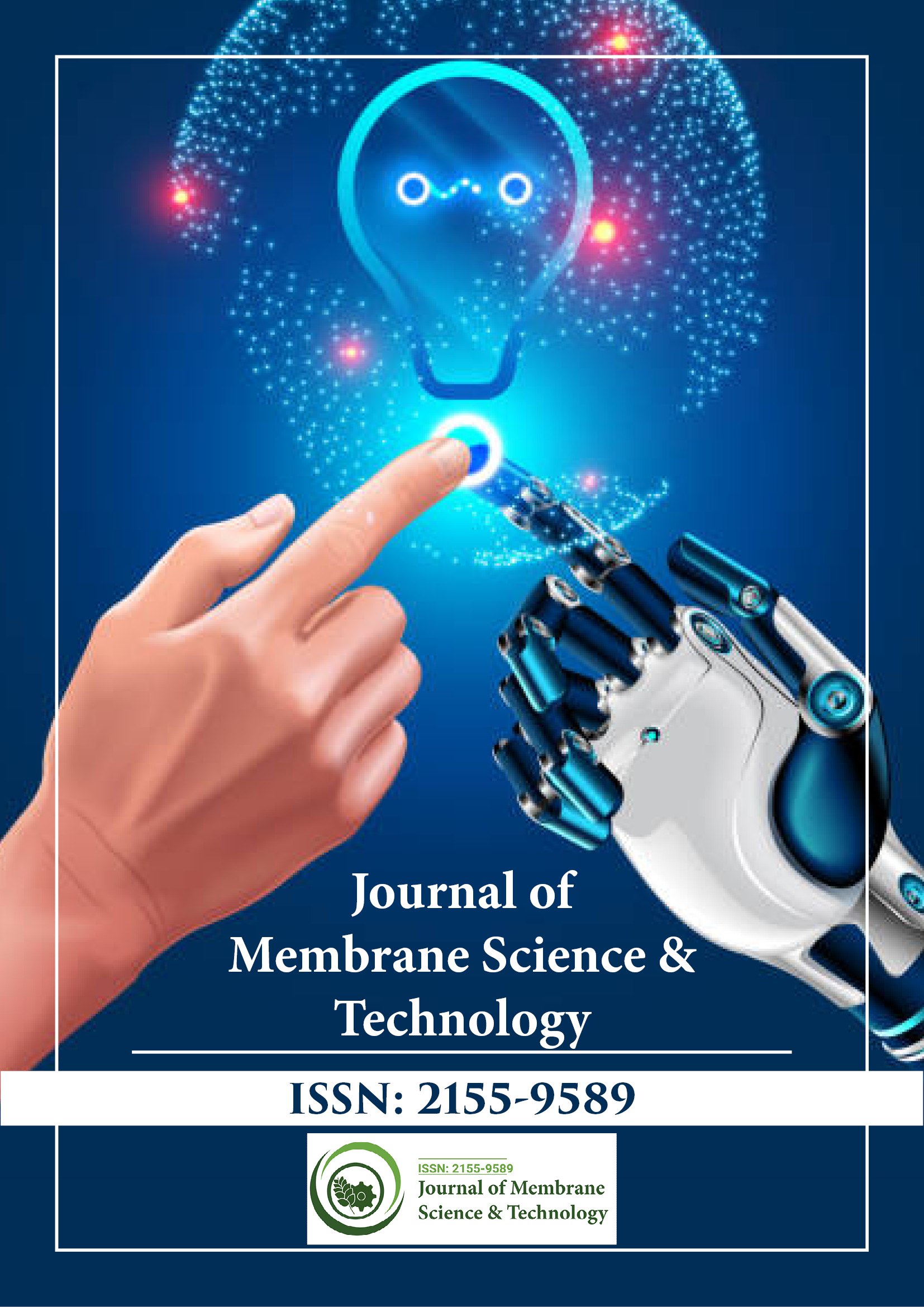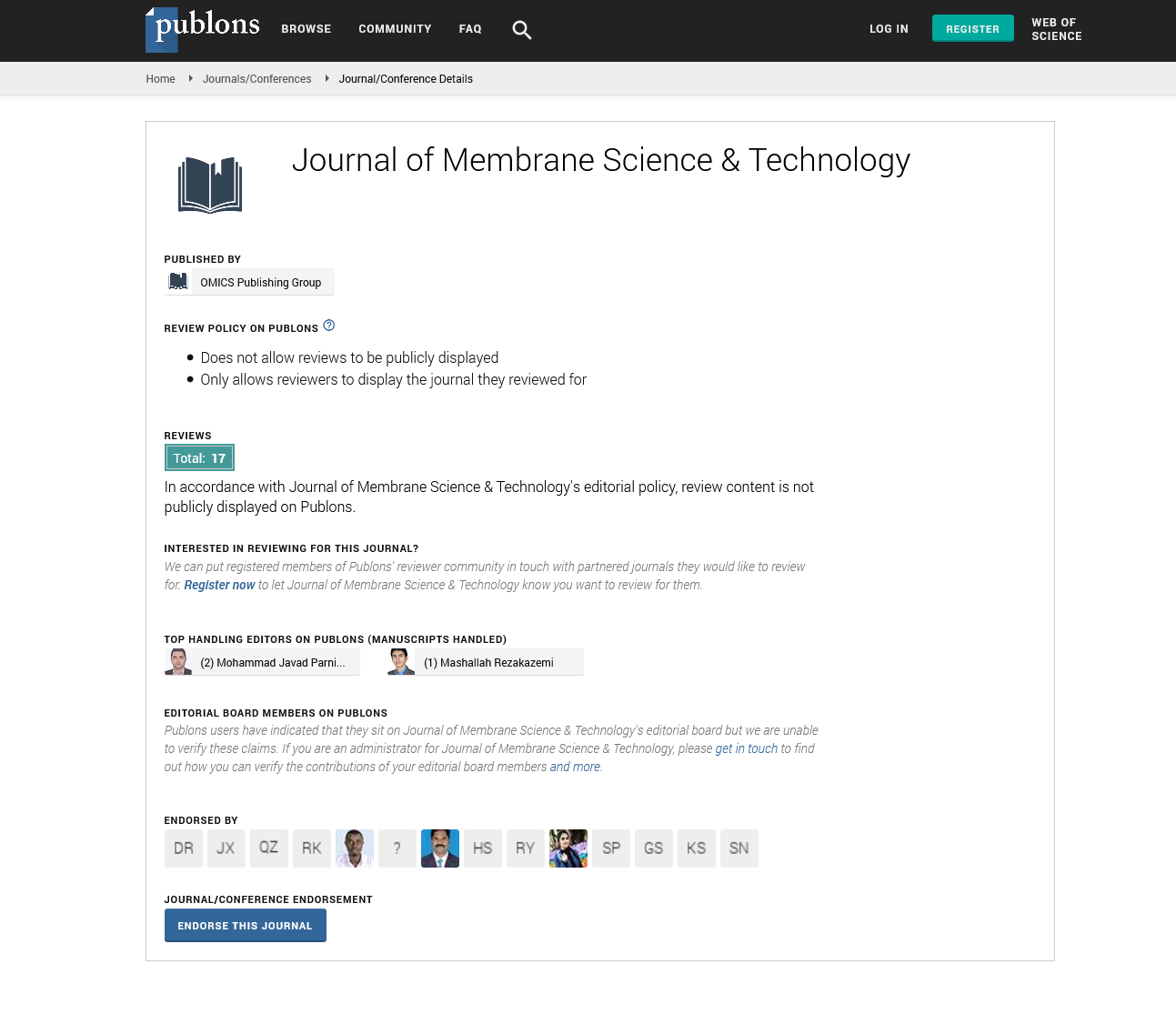Indexed In
- Open J Gate
- Genamics JournalSeek
- Ulrich's Periodicals Directory
- RefSeek
- Directory of Research Journal Indexing (DRJI)
- Hamdard University
- EBSCO A-Z
- OCLC- WorldCat
- Proquest Summons
- Scholarsteer
- Publons
- Geneva Foundation for Medical Education and Research
- Euro Pub
- Google Scholar
Useful Links
Share This Page
Journal Flyer

Open Access Journals
- Agri and Aquaculture
- Biochemistry
- Bioinformatics & Systems Biology
- Business & Management
- Chemistry
- Clinical Sciences
- Engineering
- Food & Nutrition
- General Science
- Genetics & Molecular Biology
- Immunology & Microbiology
- Medical Sciences
- Neuroscience & Psychology
- Nursing & Health Care
- Pharmaceutical Sciences
Polymer electrolytes membranes for energy applications
International Conference on Membrane Science and Technology
September 11-12, 2017 | Paris, France
Asmae Mokrini
National Research Council of Canada, Canada
Scientific Tracks Abstracts: J Membra Sci Technol
Abstract:
Polymer electrolyte membranes are cost effective and versatile components, useful for a broad spectrum of electrochemical energy generation and storage systems powering electric vehicles. They offer potential advantages such as: (1) ease of fabrication using roll-toroll automated techniques lowering cost and facilitating quality control, (2) capability of manufacturing large area thin films with high flexibility, good interfacial electrode/ electrolyte contacts and (3) possibility of using tailored additives to achieve required properties. Fuel cell and battery electric vehicles, both use electric drivetrains, where battery electric vehicles (BEV) power their motors solely with batteries, while fuel cell electric vehicles (FCEV) are hybrids, powered by a hydrogen fuel cell and a small battery. FCEV are based mainly on proton exchange membrane fuel cell (PEMFC) technology, using a polymer electrolyte based on perfluorosulfonic acid ionomers. This technology delivers high power density and offers the advantages of a fast start-up time, low weight and volume, and favorable power-to-weight ratio, compared to other fuel cell technologies. However, lowering cost and improving durability of all components in general and PEM in particular, are still challenging large scale deployment of FCEV. BEV is mainly based on Liion technology that uses organic liquids as electrolytes. Polymer electrolytes hold the promise of providing energy storage with high volumetric and gravimetric energy densities at high power densities, yet with far less safety issues relative to those associated with conventional liquid or gel-based lithium-ion batteries, such as side reactions, gas venting, and the need for sophisticated seals to contain the liquids. However, they are still limited by the level of conductivity of the solid electrolyte at room temperature, requiring the use of external heating systems to increase lithium ion transport. The development of safe, more conductive solid electrolytes, together with low-cost manufacturing processes are keys to further improvement of this technology for electric vehicles. This presentation shows NRC capabilities in developing, assessing and manufacturing of advanced mechanically robust and flexible polymer based ion conducting solid state electrolyte membranes for applications in fuel cells and lithium based batteries to power electric vehicles. Technologies developed are addressing current challenges for FCEV and BEV and are capable of meeting the demands of high volume production, cost, performance and durability requirements for automotive applications.
Biography :
Asmae Mokrini is the Team Lead of Materials for Energy Technologies at the Automotive and Surface Transportation Portfolio at the National Research Council of Canada. She obtained her PhD from the Chemical Engineering Department of the University of Barcelona in 1998, and an Industrial Master’s degree in Polymer Science and Engineering from the University Menedez- Pelayo in Madrid in 2000. Her research interests are mainly on the development of materials and manufacturing processes for energy applications. She joined NRC in 2003, where she is presently managing a team of 10 researchers and technical officers working on materials and components development, testing protocols and R2R manufacturing of different battery, and fuel cell and technologies for EVs.

